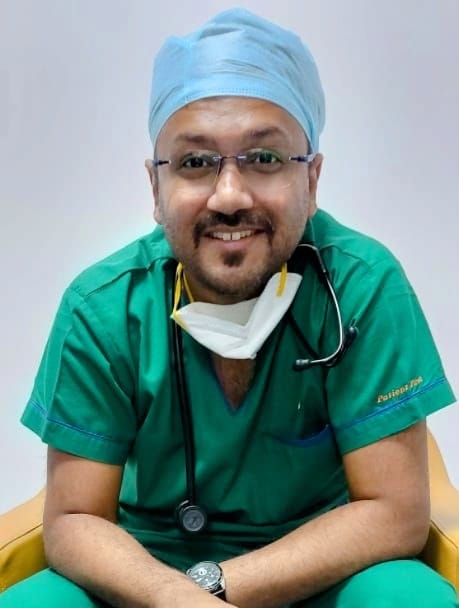
Get all your questions answered on knee replacement surgery: Who needs it, when to consider it, how it's done, and recovery tips from a medical expert.
The knee joint is one of the most important joints of the human body. It is a vital part of the weight-bearing axis. Any kind of damage to the knee joint causes many symptoms ranging from simple stiffness to severe pain, affecting basic activities of daily living (BADL).
Knee Replacement surgery is a common orthopaedic surgery in the geriatric population. Knee problems are a common finding in geriatric care. Knee Replacement surgery costs may vary from hospital to hospital. To learn more about the common problems of seniors, visit our Common Problems section on our website. Check out videos by medical experts on Joints and Mobility.
The choice of whether to have the surgery depends on multiple factors, including:
- Condition of the knee joint
- Patient’s age and activity level
- Patient’s limitations due to their Condition
The first question that should be addressed is WHO needs knee replacement surgery?
Except for trauma, all other causes ( osteoarthritis, rheumatoid arthritis etc) lead to gradual damage to the knee. The common initial symptoms are joint stiffness, swelling and dull aching pain. Gradually over the years as the damage worsens the symptoms worsen.
People who have the below-mentioned complaints should immediately consult an orthopaedic surgeon-
- A severe knee pain that prevents them from carrying out daily tasks and activities like climbing stairs, getting up from a chair, and getting in and out of a car.
- Moderate continuous pain that persists even during rest and sleep
- Severe knee swelling that doesn’t improve with medication and rest
- Noticeable knee deformity
The next question is WHEN-
Not all patients who consult an orthopaedic surgeon will be advised to undergo surgery. Depending on the assessment of the degree of damage to the joint, they might be advised-
- Painkillers and exercises to strengthen the joint
- Physiotherapy
- Weight loss to reduce the pressure on the knee and, in turn, slow down the advancement of arthritis
- Injection therapies ( steroid injections, viscosupplement injections, platelet-rich plasma injections)
- Nerve block therapy (numb the nerve that carries the pain stimulus from the knee joint). This is usually done by pain physicians.
When all of these alternatives don’t work or when the damage to the knee joint is too severe, then the surgeon will advise for replacement surgery.
Then comes the HOW-
There are 3 components-
1. Pre-operative: before the surgery
2. Intra-operative: during the surgery
3. Post-operative: immediately after the surgery
Knee replacement surgery is a major surgery, so preoperative preparation, medical consultations, and physical evaluation usually begin 2-3 weeks before the surgery.
Discussion and counselling sessions with the surgeon, physician, anaesthetist and physiotherapist are vital for the patient to ensure a smooth and anxiety-free journey.
Many people in the geriatric age group have co-existing medical conditions like High BP, Diabetes, Asthma, and Heart conditions. So a consultation with their treating physician is a must. Before undergoing the surgery, the surgeon and the anaesthetist will ask for a fitness certificate from the treating physician.
After the decision to undergo surgery is taken, the next step is to decide what type of surgery will be needed. Total replacement of one side, total replacement of both sides in one sitting, staged replacement of both sides with a gap of 48 hours, and partial replacement are the options that the surgeon will discuss with the patient and relatives.
Another important aspect that needs to be addressed before finalising the date and type of surgery, is whether there will be enough family support to help the patient in his/her recovery process. The willingness and compliance of the person to follow all the instructions in the Post-operative period need to be assessed.
On the day of surgery, the anaesthetist will discuss the types of anaesthesia. Spinal, epidural and general anaesthesia are the options available, out of which the type that is safe for the patient will be administered.
Surgery takes around 1.5-2 hours. After spending some time in the recovery room the patient will be shifted back to the ward.
The pain management in the immediate post-operative period is managed by the anaesthetist. Physical therapy starts the next day. Even though performing the steps and exercises might cause some pain initially, they should not be missed, as they help in building knee strength and thus prevent future complications. Usually, the total hospital stay is around 2-3 days.
Finally the AFTER-
The success of the surgery depends largely on how well the patient follows the instructions given by the surgeon during the first few weeks at home. The set of instructions mainly focuses on Physiotherapy, diet and wound care.
Basic activities can be resumed by 4-6 weeks after surgery and complete recovery takes around 3-4 months.
Surgical complications can occur not only during the surgery but also in the recovery phase at home.
- Infection at the operative site
- Fracture during or after the surgery
- Blood clots in the legs
- Blood clots in the lungs
- Persistent pain or stiffness in the knee joint
- Nerve damage leading to numbness in the leg
In a nutshell, Knee replacement surgery is a major surgery that requires mental and physical preparation on the part of the patient and the support of family members.
Since many medical sub-specialities (orthopaedic surgeon, physician, anaesthetist, physiotherapist, dietician) are involved in the entire process, it is important to ask questions to each one of them. This will help in alleviating the anxiety and fear of the patient
- Are my symptoms severe enough to warrant surgery?
- Are there any options other than a replacement surgery, that will help me in treating my joint problems?
- If I decide to undergo the surgery how should I proceed?
- What are the types of knee replacement surgeries and which will be the best one for me?
- Do I need to take care of my other medical conditions before I go for the surgery?
- Should I go for a second opinion before deciding on the surgery?
- Is my surgeon experienced enough in the field of replacement surgeries?
- What type of anaesthesia will I be given?
- What complications should I keep a watch for once I go back home after surgery?
- Will I have severe pain after the surgery during my hospital stay?
- How long will I stay in the hospital?
- What will be the total cost of the entire stay including the surgery and will my insurance cover that?
- How long will it take for me to recover completely?
- How long will I have to continue the exercises?
- What is the life of the implant used?
- Will I need a revision surgery if some issue with the implant arises or can that be managed medically?
About The Author:

Dr. Brishnik Bhattacharya
Consultant anaesthesia and acute pain management, Jupiter Hospital, Pune
MBBS, DA, DNB (Anaesthesiology)
Dr. Brishnik Bhattacharya is a distinguished Consultant in Anaesthesia and Acute Pain Management at Jupiter Hospital, Pune. He is renowned for his expertise in managing complex pain conditions and providing exceptional patient care. His extensive knowledge, combined with a compassionate approach, has earned him the respect and trust of both his peers and patients.
Healthy Wrinkles is devoted to better healthcare for senior citizens. We hope that our Healthy Wrinkles YouTube channel, blogs and healthcare service databases will help seniors and their families to ensure better senior care.
Disclaimer: Healthy Wrinkles does not recommend or offer any medical diagnosis, treatment, or advice. The information provided here is only for the awareness of disease or ailment among individuals, caregivers, and the public. The advice of doctors, licensed professionals, or therapists who are knowledgeable about your particular situation should always be sought before using the information provided here. It should also not be used in the event of a medical emergency or for the diagnosis or treatment of any medical condition. If you want urgent assistance, contact a qualified medical professional.

